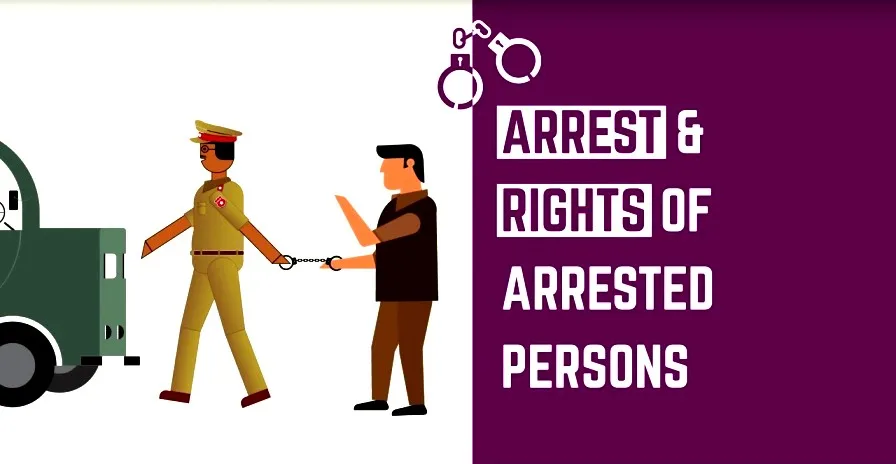Article 21 of the Indian Constitution provides some ray of hope in the lives of the arrested, undertrials and convicts. Such people should be treated humanely and in the manner prescribed by law. Maneka Gandhi v. Union of India (AIR 1978 SC 597) held that the State and for that matter the police as the principal law enforcement agency have an undoubted duty to bring criminals to justice. Yet, to achieve this laudable social objective, the law and procedure adopted by the State must conform to civilized standards. Therefore, the procedure adopted by the State should be just, fair and reasonable.
Related legal provisions as to the important rights of an arrested person:
I. When the police is arresting without warrant: Section 41 of the CrPC gives the police wide powers to arrest, mainly in cognizable offences, without the need to approach a magistrate to obtain an arrest warrant.
No legal arrest can be made if there is no information or reasonable suspicion that the person is involved in a cognizable offense or commits an offense referred to in section 41.
Read Also: Police Investigations: How does the police investigate the case in India? Full Procedure
How were you arrested?
Section 46 of CrPC envisages the methods of arrest i.e. depositing in custody, physically touching the body or confining the body. Arrest is a restriction on personal liberty. The arrest may be made by actual contact, unless the detainee is submitted to by words or conduct. If force is required, it should not exceed what is reasonably necessary and this section does not confer the right to execute a person who is not accused of an offense punishable with death or imprisonment for life.
Where a woman is to be arrested, unless the police officer is a woman, the police officer shall not touch the person of the woman in order to make the arrest and shall be deemed to have been arrested on oral notice presented to the custodian.
After sunset and before sunrise, no woman can be arrested except in exceptional circumstances and with the prior written permission of the local magistrate.
No unnecessary restraint – Section 49 of CrPC provides that restraint should not be more than necessary to prevent escape, i.e. force must be used for the purpose if necessary; But a person should be arrested before he can succumb to any kind of pressure. It is illegal to detain or detain without arrest.
Right to know the grounds of the person arrested: Section 50(1) of CrPC provides, “Every police officer or other person arresting any person without warrant shall forthwith give a full particulars of the offense for which he is arrested.” or there are other grounds for such arrest.
In addition to the provisions of the CrPC, Article 22(1) of the Constitution of India provides, “No person who is arrested shall be detained nor, without being informed as soon as may be of the grounds of the arrest, shall shall be refused.The right to be consulted and defended by a legal practitioner of his choice.
Search of the arrested person- Section 51 of CrPC allows a police officer to personally search the arrested persons. In connection with the provisions of this section, reference may be made to Article 20(3) of the Constitution of India which guarantees the accused against self-incriminating testimony. Though an accused cannot be compelled to produce any evidence against him, it can be seized from the person or custody of the accused by issuing a search warrant under process of law.
Medical examination of arrested person – Section 54 of CrPC provides for compulsory medical examination by a medical officer in the service of the Central or State Government or, in the absence of such medical officer, by a registered medical practitioner. Female arrestees can be examined only by a female medical officer or a registered medical practitioner.



